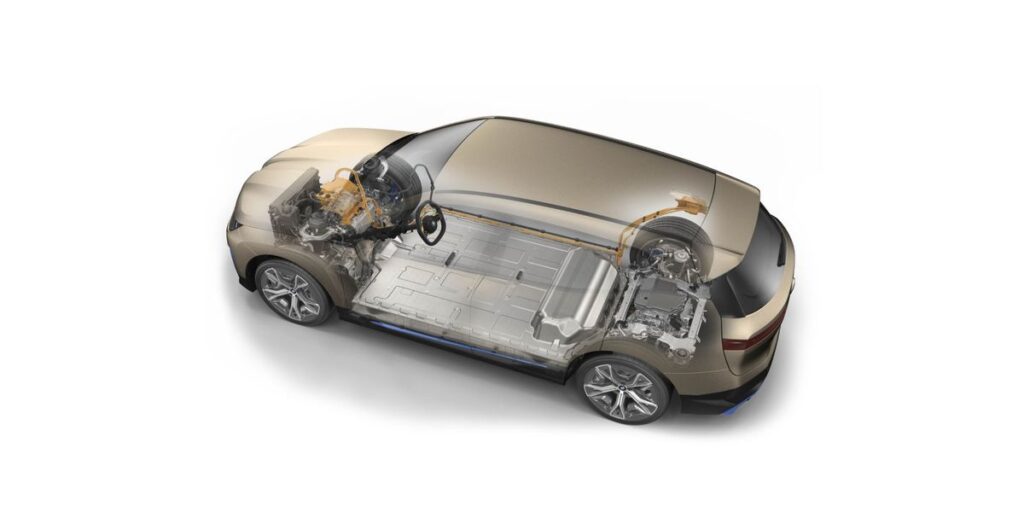BMW Gets Ready to Test Solid-State Batteries for EVs

BMW and battery developer Solid Power expand plans to collaborate on solid-state battery technology, with plans to begin testing vehicles will these cells in 2023. The automaker is preparing to build a prototype line in its Cell Manufacturing Competence Center (CMCC) in Germany to test solid-state battery production.BMW says a working prototype with solid-state batteries will be presented before 2025, but market launch timing remains fluid for now.
Several automakers and tech startups have been working on solid-state battery technology, with the promise of lighter weight and longer range in EVs being just two of the benefits. The race to offer solid-state batteries in production vehicles is arguably the single most important one when it comes to EV technology in this decade, with a number of developers pursuing different battery compositions, and working to scale them up from the lab to the production line.
Battery developer Solid Power, backed by Ford and BMW, is working on using a sulfide-based solid electrolyte in place of the traditional liquid electrolyte in its battery design, with the same aim of offering a lighter battery and a higher energy density, compared to traditional lithium-ion designs.
BMW revealed this week that Solid Power plans to deliver full-scale automotive cells for testing this year. The two companies have also expanded their joint development agreement, allowing BMW to build a prototype line in its Cell Manufacturing Competence Center (CMCC) located in Parsdorf, Germany, near Munich.
This expanded agreement will allow BMW and Solid Power to perform cell development and manufacturing activities at locations owned by both companies.
Before the prototype manufacturing line gets rolling, BMW Group staff will work with the startup’s engineers to fine tune cell manufacturing processes. The automaker says a demonstrator vehicle with a solid-state battery on board will appear before 2025.
“Expanding our relationship with BMW is further evidence that both companies believe in Solid Power’s technology development and the value of solid-state batteries,” said David Jansen, interim CEO, president, and chair of Solid Power.
Other German automakers are also in the race, with Mercedes-Benz backing solid-state startup Factorial Energy, based in Boston and also backed by Stellantis and Hyundai, as well as solid-state developer ProLogium.
Solid Power has been developing sulfide-based solid electrolytes at a pilot scale, but they will soon be ready for testing in actual cars.
Solid Power
But BMW’s Neue Klasse EVs, due in 2025, won’t immediately benefit from solid-state tech. The automaker plans to introduce the next generation of cylindrical lithium-ion cells, dubbed Gen6, in Neue Klasse models, promising a 30 percent improvement in range in the WLTP cycle. So solid-state batteries aren’t quite around the corner by BMW’s estimates, even though the automaker will begin testing them in prototypes later this year.
“The new BMW round cells come with a diameter of 46 millimeters and two different heights of 95 mm and 120 mm,” the automaker said in regard to its next-gen lithium-ion cells. “Compared to the prismatic cells of the fifth BMW battery cell generation, the cell’s volumetric energy density will improve by more than 20 percent.”
However, BMW has refrained from predicting just when we’ll see solid-state batteries in its production cars, including the Neue Klasse models. BMW expects that before 2030, 50 percent of its sales will come from battery-electric models, but whether most of these will be its next-gen lithium-ion designs or solid-state compositions remains to be seen. BMW certainly knows other automakers also want to be the first to offer this technology in their cars.
But Solid Power has a more definitive estimate, indicating it expects to scale its electrolyte production by 2028 to power 800,000 vehicles annually.
“BMW remains committed to the pursuit of all-solid-state batteries, a technology which we believe has significant potential for the future,” said Frank Weber, member of the Board of Management for BMW, Development.



